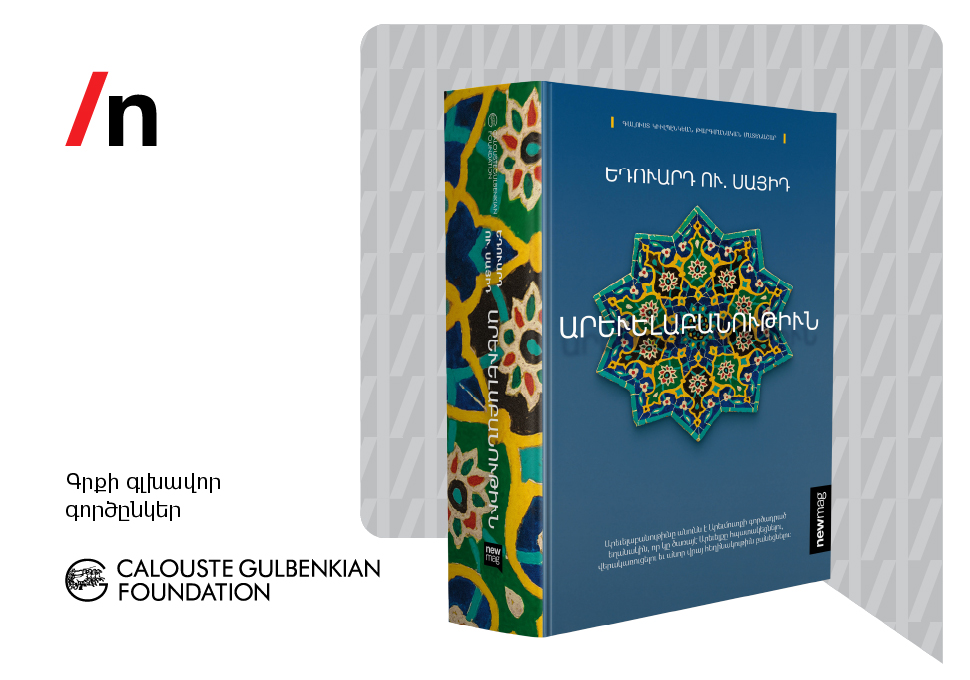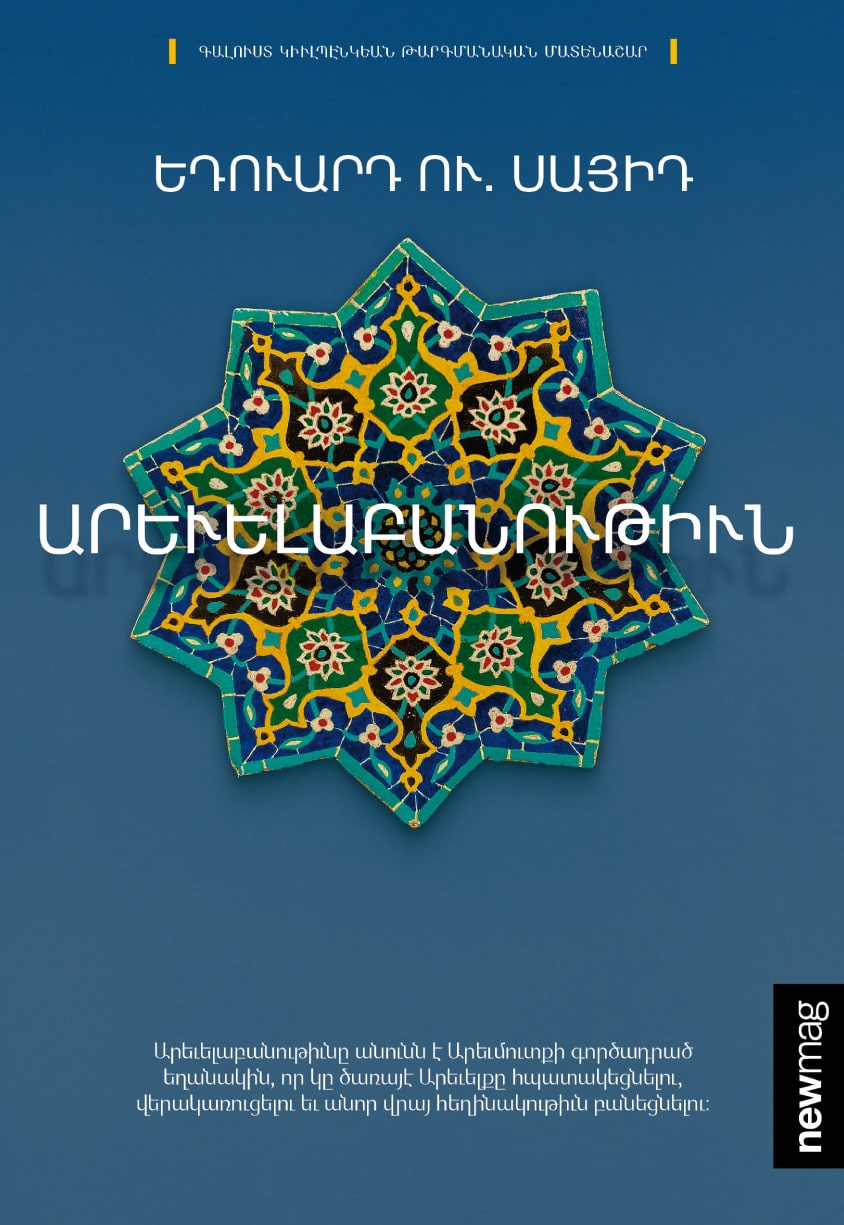New Book, New Series: Newmag Presents Edward Said’s Groundbreaking Work “Orientalism” (Trailer)
03/20/2025

The most influential and transformative study of Orientalism in history and the social sciences, Edward Said's “Orientalism”, has been published in Armenian for the first time in nearly half a century.
Originally published in 1978, “Orientalism” critically examines the West’s “Eurocentric prejudice against Arab-Islamic peoples and cultures.” Said’s work exposes how deeply ingrained, romanticized, and often false perceptions of Asia and the Middle East have shaped Western literature, scholarship, and policies—ultimately justifying colonial and imperial ambitions.
The book addresses key questions such as:
- How did the West define the East as the "Orient"—the “Other”?
- Why does the West resist understanding the East on its own terms?
- How has the West historically perceived the East?
- Why does the West look down on the Near and Middle East?
Edward Said, often described as the scholar who “changed the face of intellectual discourse in the Arab world,” was born in Jerusalem, raised in Egypt, and educated in the United States at Princeton, Harvard, and Columbia. Initially focused on literature, music, and art, he avoided direct involvement in Middle Eastern politics until the 1967 Six-Day War. Seeing the devastating territorial losses of his people, he became one of the most prominent advocates for Palestinian self-determination in the United States.
At first, Said worked alongside Yasser Arafat, supporting the “two-state” solution, but he later distanced himself, becoming one of Arafat’s most vocal critics. In 1994, while much of the world celebrated the Oslo Accords as a breakthrough for Israeli-Palestinian peace, Said was one of the few to warn against its flaws. “Arafat isolated himself, made serious mistakes,” he stated, arguing that Palestinians could not secure peace through concessions alone.
An intellectual giant and a fierce critic of imperialism, Said was closely monitored by the FBI, which kept a 238-page file on him. Even Columbia University, where he was a professor, faced pressure to distance itself from him but refused to do so.
Edward Said passed away in 2003 at the age of 67 after a long battle with leukemia. Two decades after his death, the ongoing struggles of the Palestinian people underscore the relevance of his work more than ever.
“Orientalism” is essential reading for anyone seeking to understand the deep cultural, political, and ideological conflicts shaping the modern world.
The book’s publication was made possible through the support of the Calouste Gulbenkian Foundation. As part of the Calouste Gulbenkian Translation Series, Armenian readers now have access to this revolutionary work.
The presentation of “Orientalism” will take place at the “New Thought x New Translation” Gulbenkian & Newmag book forum on March 27–28 at the Holiday Inn Yerevan, Armavir Hall.

Edward W. Said
8800 ֏
Description
In this extensive, intellectually influential study, Said presents the history of Orientalism. The West, which had long dominated the Near and Middle East, viewed the East from a superior position. The East was called the “Orient” in the West, that is, “Other” in the West. This perspective continues to be entrenched in the West, and, since the West has not allowed the East to present itself, it also inhibits attempts to fully understand the East.
This groundbreaking book, first published in 1978, remains one of the most influential studies in social science, especially in the fields of ethnography and postcolonial studies. Said was critical of the concept of “Orientalism,” which he considered to be a set of false assumptions of the West about the East.
This Throughout the book, Said presents “the Eurocentric prejudice against Arab-Islamic peoples and cultures.” He shows that the false and romantic perception of Asia and the Middle East, rooted in Western culture, served as a justification for the colonial and imperial ambitions of Europe and the United States.
Read also


Newmag Book Salon: A publishing house in the heart of the city is shaping a new literary and urban culture

A Closed Community of Independent Thinkers: Newmag Launches Signature Club (Video)

Newmag Publishing Presents Two New Books on Armenia TV’s “Good Morning” Program (Video)

